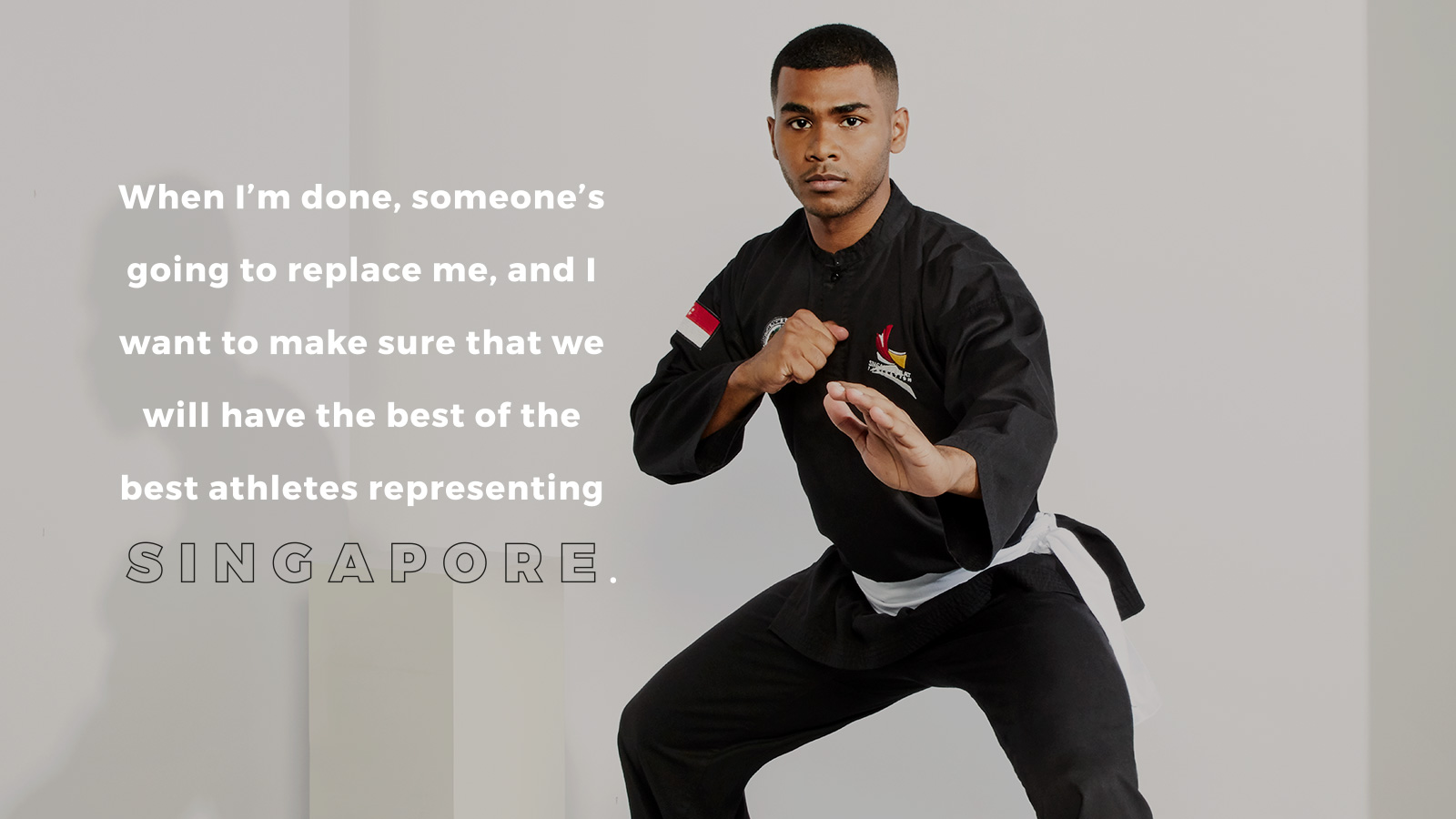Though he managed to gain admission into the Singapore Sports School as an athlete with high potential, he was frequently disheartened when he lost — and this happened quite often. “It was really demoralising. People knew you were a student of the Sports School and that you’re the son of a silat champion. Of course, there was pressure to do well, but I also had pride, and wanted to win not only for my family but myself too.”
Initially, he thought his natural talent, skills and basic training sessions would be enough, but soon realised he had to put in a lot more work. When he turned 15, Farhan, in his own words, “woke up”. He went to the gym more, began to analyse his strengths and weaknesses and those of this opponents, and made changes to his diet. He trained strategically and holistically, something which he still practises today. His efforts paid off. “I started winning again and it felt good.”
THE PRICE OF SACRIFICE
Among his toughest challenges to attaining and defending his World Championship titles was dealing with untimely injuries. A medial collateral ligament injury, in particular, happened while he was training for the 2016 World Pencak Silat Championship, just a week before his departure from Singapore. He recalls: “Though I was not at 100 per cent during the competition, I managed to defend my world title. I am grateful for the help of my coaches, sparring partners and physiotherapist.” Farhan had also just recovered from a shin injury just before his inaugural outing at the 2015 Pencak Silat World Championships, where he first became world champion.

















